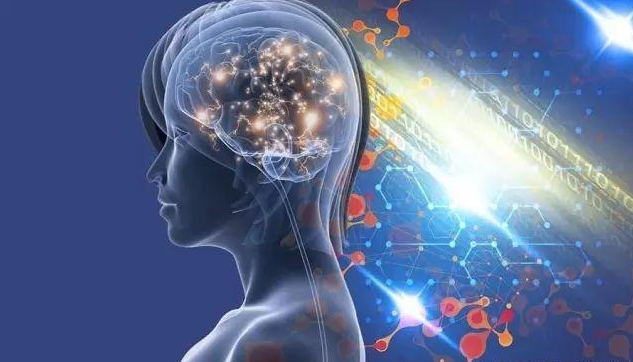The human brain has 140 billion neurons, which are interconnected to form a huge neural network. The so-called memory is to store important information received in this network, and some experts believe that it is stored in an area called the “hippocampus”. Without memory, there is nothing, just like a blank sheet of paper. Since Ebbinghaus (1885) published his experimental report, memory theory and research methods have been continuously developed. Scientific memory methods are an important aspect of memory research. Artificially use a special way to memorize to improve the memory effect.

Anyone can improve their memory unless they are experiencing memory loss as part of a medical condition. Whether you want to excel on a science test, compete in the World Memory Championships, or maintain and strengthen your memory as you age, we have some tips for improving your memory that may help you.
Your daily habits affect how your brain works. There are many steps you can take to harness the power of your brain to change and improve your memory. Here are tips to help you activate your brain’s recall and memory.
- Eat brain-boosting foods
Mediterranean diet
The Mediterranean diet is ranked as one of the healthiest diets on the planet. It is based on the intake of fruits, vegetables, whole grains, legumes, healthy fats (such as olive oil, nuts and fish) and lean protein.
Studies show that a Mediterranean-style diet can prevent major chronic diseases and help you live longer. It has also been shown to have long-term positive effects on cognitive function and is associated with less cognitive decline and improved memory and concentration.
Extra virgin olive oil is a major component of the Mediterranean diet, and consumption of extra virgin olive oil has been found to protect memory and learning, and prevent cognitive decline.
ketogenic diet
The ketogenic diet has drawn public attention to the categorization of health benefits and weight loss claims. A ketogenic diet is low in carbohydrates and high in fat. Slashing your carbohydrate intake and replacing them with fat will put your body into a metabolic state known as ketosis.
Ketosis increases how efficiently the body burns fat for energy and produces ketones from fat in the liver to fuel the brain.
Here are some foods that recent research has hailed as memory boosters.
Eating walnuts was associated with improved performance on tests of cognitive function of memory, attention, and information processing speed.
When taking cognitive tests, blueberry concentrate can improve brain function, working memory, blood flow to the brain, and brain activation.
Lutein, found in kale and spinach, along with avocados and eggs, may fight cognitive aging and improve learning and memory.
Avocados improved cognitive function in tests that assessed memory, processing speed, and concentration levels.
Cocoa powder and chocolate improve working memory and visual information processing, and also counteract cognitive impairment associated with sleep deprivation. Dietary cocoa flavanols have also been found to reverse age-related memory decline.
Caffeine — the equivalent of five cups of coffee a day — reverses memory impairment in mice that develop Alzheimer’s symptoms.
Cinnamon promotes memory improvement and may target cognitive impairment and Alzheimer’s disease.
Compared to chamomile and hot water, peppermint tea significantly improved long-term and working memory, as well as alertness.
- Actively exercise

It’s important to stay active if you want to keep your memory sharp. Exercise increases oxygen levels in the brain and reduces the risk of cardiovascular disease and diabetes, which can lead to memory loss, lower levels of stress hormones, and increase the action of beneficial brain chemicals.
Exercise also promotes neuroplasticity in certain structures of the brain, thereby enhancing cognitive function.
In an analysis investigating brain health in people over the age of 50, researchers found that a combination of aerobic exercise and resistance training can boost brain power. Aerobic exercise improves cognitive performance, while resistance training improves memory, working memory, and executive function.
Aerobic training in young adults has also been shown to be a predictor of recognition memory.
In particular, hormones that increase during exercise, called growth factors, help improve memory. Growth factors mediate the link between exercise and brain health through the hippocampus, the region of the brain responsible for learning and memory.
Doing at least 45 minutes of moderate-intensity aerobic and resistance training at a time, on as many days of the week as possible, may benefit your cognitive performance and memory.
Research also suggests that if you want to remember what you just learned, you should start exercising after 4 hours. People who exercised 4 hours after study were better at remembering information 2 days later than those who exercised immediately after study or didn’t exercise at all.
Exercise doesn’t have to be all running and weightlifting; horseback riding has been shown to boost cognitive performance in children, and dancing can reverse signs of brain aging.
- Take a nap
Do you think improving your memory is a challenge? On second thought, you can get a better memory by napping.
Adults need 7-9 hours of sleep each night to stay healthy physically and mentally. Sleep helps consolidate short-term memory and consolidate long-term memory. After sleep, people tend to improve their memory of information and perform better on memory tests. Skipping the recommended sleep time, however, interferes with the brain’s ability to form new memories.
Sleep may be a hassle-free way to improve long-term memory of information. Participants in one study who slept during their studies could recall between 10 and 16 words on a memory test, while those who did not sleep could recall only 7.5 words on average.
Other studies have found that among adults 65 and older, taking an hour-long nap performed better on cognitive tests than those who didn’t.
Those who took shorter or longer naps, or those who didn’t nap at all, experienced an intellectual decline equivalent to the expected 5-year-old gain.
- Exercise your brain
The popularity of brain training apps has turned the industry into a multi-billion dollar industry. However, do brain training programs really work? There is growing evidence that they are not.
Brain training programs can improve the tasks you’ve been practicing, but they don’t seem to enhance memory, intelligence, or cognition.
However, there are techniques you can use to help you learn to code and recall important information called mnemonics. These methods can become your superpowers when you need to remember someone’s name – for example, at a large event.
A mnemonic method is a shortcut that helps us associate the information we want to remember with a word, image or sentence. It’s a way of remembering information so that it stays in our brains longer and is easier to recall.
Types of mnemonics include:
The trajectory method, which asks you to imagine what you want to remember follows a familiar route. Associate a word or concept with a location of yours so it’s easier to recall later
Acronyms can be used as a tool to remember anything from the colors of the rainbow to items on your shopping list. For example, you can use the acronym “CAKE” to help you remember that you need to collect cheese, apples, kale and eggs from the store
Rhyming can help you recall information such as how many days there are in June: “Thirty days include September, April, June, and November.”
Chunking is a method of breaking up a large piece of information into smaller, more manageable chunks of information, such as breaking a US phone number into three smaller pieces, rather than trying to remember all 10 numbers individually
Imagination helps you remember pairs of words, such as blue water, yellow sun, and green grass. By recalling a specific image, it helps us recall information related to that image
- Relax and rest

Chronic stress has adverse effects on the brain. Over time, stress damages brain cells, damages the hippocampus, and has been linked to memory loss. Therefore, managing stress is one of the best ways to protect your memory.
Meditation and listening to music may be effective strategies to relieve stress and reverse early memory loss in elderly patients with cognitive decline.
In one study, meditation and listening to music significantly improved subjective memory function and objective cognitive performance over a three-month period. Memory and cognitive gains persisted or increased further up to 3 months after the intervention.
Twenty-five minutes a day of mindfulness meditation and hatha yoga has also been found to have a positive effect on mood, improving brain function and cognitive performance.
Do you like graffiti or photography? These hobbies can serve as tools to aid recall. In one study, scribbling during a boring task improved recall by 29 percent compared to a task without scribbling, while in another, taking pictures improved performance on a visual memory task.
Finally, if you find that you relax a certain aroma, you might want to try rosemary essential oil. Children who participated in the memory game in a room filled with rosemary scored significantly higher than those in a room with no smell.



